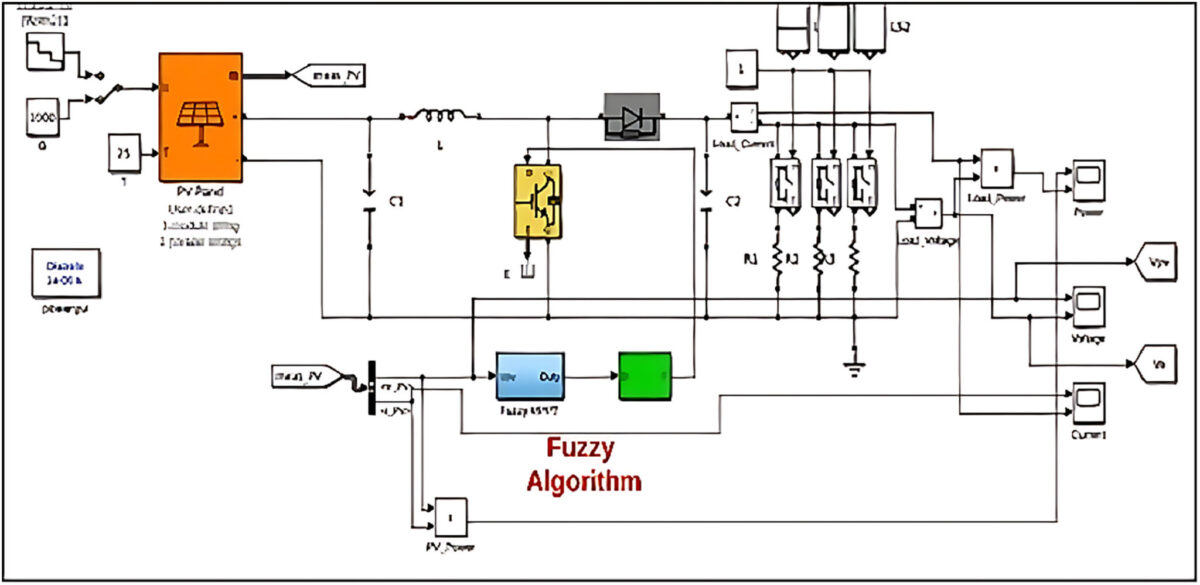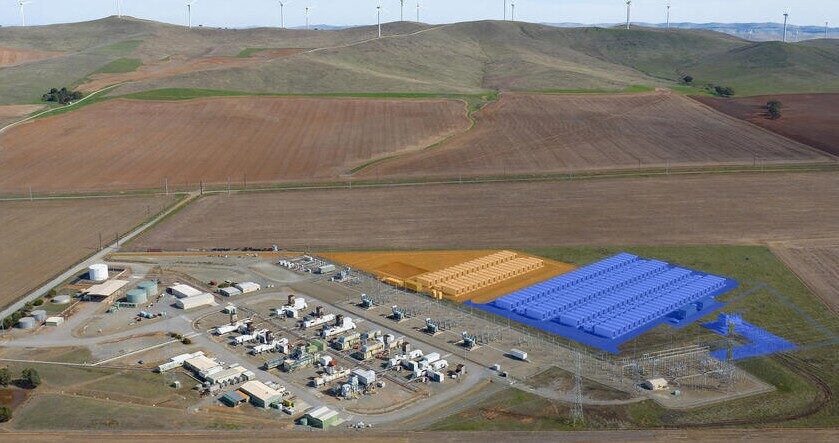From pv magazine Global
A team of scientists from Prince Mohammad Bin Fahd University in Saudi Arabia investigated the use of a fuzzy logic controller (FLC) to simultaneously optimise the tilt angle of photovoltaic panels and perform maximum power point tracking (MPPT).
“The novelty of the present study is that it presents an intelligent optimization method based on the fuzzy logic control in which the tilt angle of the PV panels can be adjusted dynamically in response to changes in the environment,” corresponding author Nivine Guler told pv magazine.
“In contrast to the standard systems, which use fixed or periodically manipulated angles, ours will change constantly as the sun changes, to enhance the energy output and efficiency of the system without requiring the use of complex mechanical tracking systems.”
Using the Simulink MATLAB-based environment, the group has tested the operation of the FLC throughout a full year.
Unlike classic controllers, which operate in discrete terms of true or false or 1 and 0, an FLC analyses input in logical terms between 0 and 1.
As for the MPPT part of the controller, it takes two inputs: an error, which represents the difference between the actual PV output voltage and the reference voltage, and a change in error, which indicates how quickly that error is changing.
The output variable is then the duty cycle, that is, the control signal sent to the buck-boost converter to adjust the voltage. In the case of the tilt angle, the FLC takes radiance and temperature as real-time inputs and outputs a tilt that maximizes the capture of irradiance.
The system was simulated to work in an undisclosed location, between the first of March 2023 and the end of February 2024.
During this period, the solar irradiance ranged between 2,048 kWh/m² and 10,007 kWh/m². The optimal tilt angles for the 12 months, starting in March and ending in February, were 28.4°, 16.4°, 12.4°, 9.4°, 20.4°, 21.4°, 22.4°, 28.4°, 32.4°, 39.4°, 38.4°, and 35.4°, respectively. The total electrical energy generated by the PV system ranged between 38.33 kWh and 210.92 kWh.
“The extent of efficiency improvement by using this adaptive fuzzy logic implementation was one of the most surprising results, especially when the irradiance conditions were partly cloudy or non-ideal,” Guler added. “The system exhibited up to 20-25% power generation improvement over the fixed angle systems with stability and low computation cost.”
The academics found that the average tracking efficiency of the fuzzy MPPT controller was 89.25%, or 17.836 W out of the expected 19.82W. Compared to the traditional P&O technique, the proposed FLC-based method produced output power elevation of 20%, which, according to the research group, verifies its robustness level and high tracking capability.
These findings point to strength, flexibility, and overall exaltation of this proposed FLC-based PV control system in promoting solar energy harvesting,” they added.
In conclusion, Guler stated that the research team will focus in the near future on integrating renewable energy forecasting with machine learning algorithms to improve the control and performance of solar systems. They are also experimenting with hybrid optimization models that combine fuzzy logic with artificial neural networks to further enhance the accuracy of energy harvesting under changing climatic conditions.
The research work was presented in “A Fuzzy Logic Controlled Solar Tilt Angle Optimization for a PV System,” published in Franklin Open. Researchers from Saudi Arabia’s Prince Mohammad Bin Fahd University, University of Technology Barhain, Kuwait Technical College, and Turkey’s Istanbul Aydin University have contributed to the study.
This content is protected by copyright and may not be reused. If you want to cooperate with us and would like to reuse some of our content, please contact: editors@pv-magazine.com.








By submitting this form you agree to pv magazine using your data for the purposes of publishing your comment.
Your personal data will only be disclosed or otherwise transmitted to third parties for the purposes of spam filtering or if this is necessary for technical maintenance of the website. Any other transfer to third parties will not take place unless this is justified on the basis of applicable data protection regulations or if pv magazine is legally obliged to do so.
You may revoke this consent at any time with effect for the future, in which case your personal data will be deleted immediately. Otherwise, your data will be deleted if pv magazine has processed your request or the purpose of data storage is fulfilled.
Further information on data privacy can be found in our Data Protection Policy.